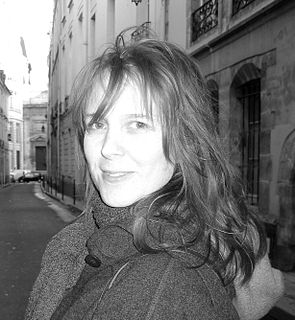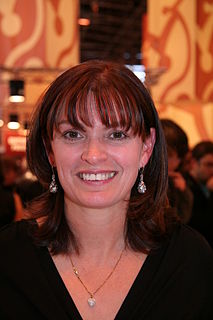A Quote by Melissa Febos
I didn't know enough as a writer to understand why I needed to do this, but I understood in a very gut way that I could not entertain those thoughts of pleasing people and write this book - that it would be a very different book. Without really sort of investigating that instinct, which I'm glad for, I just made a conscious decision to put blinders on and not think about anything and put it all in. And I did. I put everything in. I had to look at the whole picture to see what I needed.
Quote Topics
About
Anything
Blinders
Book
Conscious
Conscious Decision
Could
Decision
Did
Different
Enough
Entertain
Everything
Glad
Gut
Had
Instinct
Investigating
Just
Know
Look
Made
Needed
People
Picture
Pleasing
Pleasing People
Put
Really
See
Sort
Think
Those
Thoughts
Understand
Understood
Very
Way
Which
Whole
Whole Picture
Why
Without
Would
Would Be
Write
Writer
Related Quotes
I more seriously considered publishing it under a pseudonym than I considered publishing it as fiction. I think the decision to write it as nonfiction happened at the very outset of the process, because the overwhelming impetus for writing this book was to understand what the experience meant, and to override my own reductions and rationalizations, whatever story I had that was not true. It didn't sit well with me and I needed to answer that. That's sort of the reason I write everything.
It's one of those things where the book has all these stars that burn really bright that you hang onto and they're all saying, 'This is The Girl on the Train experience.' All those stars or hooks needed to be in the film, but sometimes they needed to be a bit different. It's important when adapting such a popular book to hit all those points but also break out expectations without slaughtering the book. And that was, for me, the joy of adapting the book.
Another sex worker and writer I respect put it this way: she said that as a writer, you're not about pleasing people, and as a sex worker it's all about pleasing people. It's all about creating this fantasy. I still feel like as a writer you actually do have put on a show. You can't just hand over your notes. And there is a degree to which you are appealing to the reader's vanity, whether you tell yourself you're doing that or not.
It's really, really eclectic. It's not a business book [Girlboss], but it's still a book that should make you want to get up and do things and think about your life. And for a book that looks that beautiful on a coffee table, I think that's a very special thing. So it's hopefully a new genre I guess, of book. It was so fun to put together and fun to write, that was really a pleasure.
There's a great temptation to throw things in, as you put it, that you think are neat, or that you have a very clear, specific memory of and think you could do a good job writing about. What I find is that it's like a seed you plant. You can try it, and if it will grow and connect with other ideas in the book, and you can see connections that you can actually realize on the page, then you're allowed to leave it in. But if it just kind of lies there and doesn't really add up to anything or there's no chemistry with everything else going on in the book, then you have to take it out.
If I haven't put that on a T-shirt, I'm going to. Actually, I really don't want to write anything that can't be put on a T-shirt. Actually I'd like to write only on T-shirts. Actually, I'd like to write whole novels on T-shirts. So you guys could say, 'I'm wearing chapter 8 of Lestat's new book, that's my favorite; oh I see you're wearing chapter 6-
I'm so very grateful to the readers who put down their hard-earned money to read what I write. They don't have to do that. They choose to. And I try and earn that trust every time I put out a book. I know that sometimes the stories head into challenging territory and I respect that that can be hard. It's a wonderful journey, though, and I'm so glad we're all on it together!
In my lifetime I was to write only one book, this would be the one. Just as the past Lingers in the present, all my writings after night, including those that deal with biblical, Talmudic, or Hasidic themes, profoundly bear it's stamp, and cannot be understood if one has not read this very first of my works. Why did I write it? Did I write it so as not to go mad or, on the contrary, to go mad in order to understand the nature of the madness, the immense, terrifying madness that had erupted in history and in the conscience of mankind?
Now, almost twenty years since my last job in book publishing, I know that there are far more socially inept people in book than in magazine publishing. At the time, however, I just didn't feel I was enough: smart enough, savvy enough, well read enough, educated enough, charming enough. Much of this was probably because I was very naive, and didn't really know how to behave in an office. This made me a terrible assistant, which in turn made me a terrible junior book editor.































